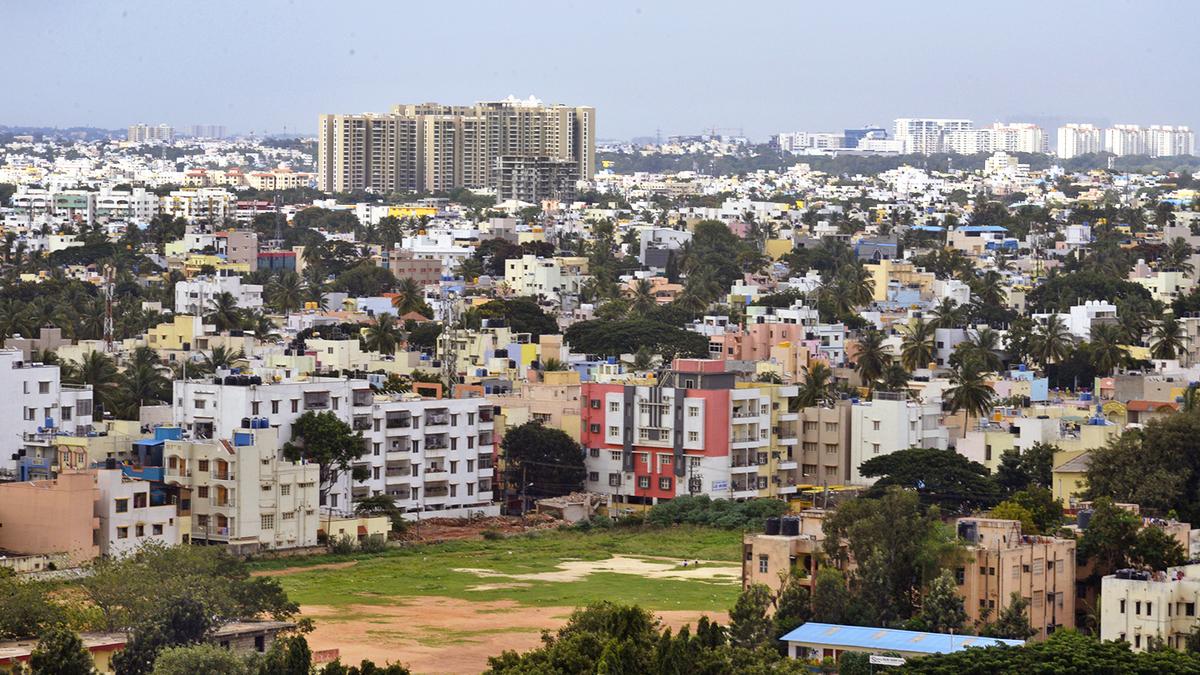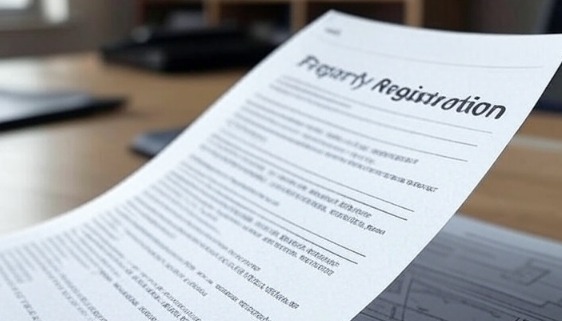The Karnataka government has announced a major decision to double property registration fees, increasing them from 1% to 2%. This unexpected move has created ripples across the real estate sector, buyers, and common citizens who aspire to own property in the state. While the government has defended the hike as a necessary step to increase revenue and fund developmental projects, the decision has left homebuyers anxious. For many middle-class families saving to purchase their dream homes, the added financial burden translates into an additional setback. This has raised concerns over affordability and accessibility of property ownership.
The real estate industry, already dealing with challenges from fluctuating demand, is now facing an additional obstacle. Experts suggest that property registrations could decline in the short term as potential buyers may delay their investments to adjust to the revised rates. Developers and builders have also expressed worry, fearing that higher fees could discourage genuine buyers and lead to a slowdown in sales. For a sector that plays a vital role in the state’s economy, generating employment and contributing significantly to state GDP, the doubled registration fee poses risks. While larger developers may sustain the blow, smaller builders may experience a heavier impact.
Government officials, however, argue that the hike will bring substantial revenue to the state exchequer. With Karnataka focusing on infrastructure expansion, urban development, and welfare projects, this revenue is expected to play a critical role in funding public initiatives. Authorities claim that even with the revised 2% fee, Karnataka’s property registration costs remain competitive compared to other states. Yet, citizens feel the decision could have been phased out gradually rather than doubling overnight. The suddenness of the announcement has added to public resentment, especially among first-time buyers already struggling with rising costs of living.
Public Reaction and Buyer Sentiment
The immediate public response to this hike has been one of frustration and disappointment. Many aspiring homeowners, particularly those from middle and lower-middle-class backgrounds, feel betrayed as the decision directly targets their financial aspirations. The emotional weight of owning property—a life milestone for most Indians—now comes with an added burden of higher costs. Citizen forums have raised concerns that the government’s approach appears insensitive to the hardships of common people. While some acknowledge the state’s need for higher revenue, most argue that this policy could have been implemented in a more balanced manner.
Real estate associations are also voicing strong concerns. They argue that at a time when the market is just beginning to stabilize after past disruptions, imposing additional charges could harm recovery prospects. Builders fear that prospective buyers will either postpone purchases or look for properties in neighboring states where registration charges remain lower. Additionally, financial experts highlight that this move could encourage informal deals and undervaluation of properties to evade the steep fee, creating loopholes and reducing transparency. Such practices not only harm government revenue but also pose risks to buyers in terms of legal disputes. For genuine buyers and small developers, the decision feels like a heavy blow rather than a constructive reform.

The decision to double property registration fees in Karnataka has triggered widespread debate among various stakeholders. On one hand, the state government is hopeful that the revised fee structure will strengthen its fiscal capacity and contribute to developmental activities, particularly in urban infrastructure. On the other hand, there is growing skepticism among ordinary citizens and industry leaders who believe that this sudden hike will dampen demand for property purchases. For first-time buyers, especially those already navigating high home loan interest rates and escalating construction costs, the jump from 1% to 2% adds a heavy burden that cannot be ignored.
Many families who had been planning property purchases in the near future are now reconsidering their decisions. Financial advisors suggest that this increase in registration fees, though seemingly small in percentage, can translate into tens of thousands of rupees in additional expenditure for middle-class households. The emotional impact of this additional cost is substantial, as it reduces accessibility to one of the most cherished aspirations—homeownership. Citizen groups have voiced concerns that the new policy could create a sense of alienation among people who see property acquisition as an essential financial security for their future generations. This feeling of exclusion is gradually intensifying public resentment.
The real estate sector in Karnataka has long been considered one of the state’s engines of growth, drawing investors, generating employment, and boosting related industries such as cement, steel, and interior design. By raising registration fees abruptly, the government risks destabilizing a sector that is only now recovering from disruptions caused by economic slowdowns and policy reforms like GST and RERA. While large-scale developers may have the resilience to absorb fluctuations, smaller builders who rely heavily on local buyers could face more acute challenges. This creates the possibility of market imbalance, where high-value projects may still attract investors, but affordable housing projects could see stagnation.
Financial experts are also analyzing the psychological effects of the fee hike on buyers. In markets driven by trust and sentiment, any sudden increase in costs tends to discourage genuine purchasers, even when overall property values are attractive. Buyers often feel that such policies reflect an inconsistency in governance, leading to hesitation in long-term investments. For many, the decision is not merely about affordability but about predictability and stability in government policy. This uncertainty could push some buyers to delay purchases indefinitely or consider opportunities in neighboring states with more favorable registration rates.
Some critics argue that the government could have implemented a more gradual increase, such as raising the registration fee in phases, which would have allowed buyers and developers to adjust. An abrupt doubling creates a shock that reverberates across financial planning, household budgets, and investment strategies. A phased approach, they argue, would have ensured steady revenue growth for the government without causing widespread disruption in the real estate market. Such an alternative could have preserved consumer confidence and avoided the risk of alienating potential buyers. Instead, the sudden decision has left many feeling blindsided and unfairly burdened.


Long-Term Outlook for Karnataka’s Real Estate
Looking forward, the real estate market in Karnataka is expected to undergo a period of adjustment as stakeholders adapt to the revised fees. While the government may succeed in generating additional revenue, the emotional and financial impact on buyers cannot be underestimated. If property registrations decline significantly, the policy could prove counterproductive in the long run. To ensure balance, experts suggest that the government should consider introducing concessions for first-time buyers or affordable housing projects. Such relief measures would help maintain buyer sentiment while ensuring steady revenue. The next few months will be crucial in determining whether this decision strengthens the state’s financial position or dampens its property market growth.
Real estate associations are already preparing to engage in dialogue with government authorities to seek reconsideration or at least partial relief. Proposals include offering concessions for first-time buyers, exempting affordable housing projects from the increased fee, or introducing rebate schemes for certain categories of citizens such as women buyers or senior citizens. Such measures could help mitigate the negative effects while still enabling the government to achieve its revenue goals. If the government demonstrates flexibility, it may restore public confidence and ensure smoother acceptance of the new policy. Otherwise, tensions between policymakers and citizens are likely to intensify in the months ahead.
From a broader economic perspective, the move to double property registration fees could also impact migration and urbanization trends within Karnataka. Bengaluru, Mysuru, and other urban hubs have been magnets for real estate investment due to their thriving economies and growth potential. However, if higher costs push buyers to explore more affordable alternatives outside Karnataka, the state could lose a competitive advantage in attracting investment. This risk is particularly concerning at a time when neighboring states are actively seeking to attract industries, IT hubs, and real estate investors by offering favorable conditions.
The political implications of this decision cannot be overlooked. Opposition parties have seized on the issue, accusing the ruling government of being insensitive to the financial struggles of the common man. Public protests and discussions on social media reveal a groundswell of dissatisfaction, with many people questioning the timing of the hike. Given the importance of homeownership in Indian society, the decision could become a politically charged issue that influences voter sentiment. If the government does not respond to citizen concerns, this policy could evolve into a significant electoral talking point.
Despite the criticism, the government continues to defend its stance, pointing out that the registration fee in Karnataka, even at 2%, is still lower than in some other states. Officials emphasize that the additional revenue will be utilized for public welfare programs, road construction, housing projects, and improving urban infrastructure. They argue that in the long run, these investments will benefit citizens and justify the short-term burden. However, this justification has not been universally accepted, as citizens remain more focused on the immediate financial strain rather than promises of future development.
Ultimately, the success or failure of this policy will depend on how the government manages the transition. If authorities introduce compensatory schemes, provide clarity on the utilization of additional funds, and engage in transparent communication with citizens, the resistance may soften over time. However, if the government ignores the growing discontent and fails to provide relief measures, the decision to double property registration fees could leave lasting scars on buyer sentiment. The coming months will reveal whether the government’s gamble pays off or backfires by discouraging investment and alienating its people.
Follow: Karnataka Government
Also read: Home | Channel 6 Network – Latest News, Breaking Updates: Politics, Business, Tech & More

